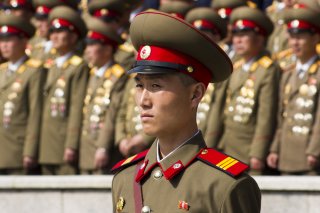How Important is the New Russia-North Korea Treaty?
If the next U.S. administration is to stop hemorrhaging its trustworthiness and influence, then a profound rethink of assumptions, strategic frameworks, and policies toward Northeast Asia will be necessary.
The mutual defense treaty signed by Russia and North Korea (DPRK) on June 19 of this year is a symbolic upgrade to the two country’s relationship. The two now have a comprehensive strategic partnership. It repeats much of the language from the 1961 treaty between the Soviet Union and North Korea. However, the language adds new conditions, so they must follow Russian and North Korean laws and respect Article 51 of the United Nations Charter, specifying that military cooperation is limited to cases in which another invades one or the other party.
Both Kim Jong-un and Vladimir Putin stressed several times that the treaty was defensive.
At least four contextual frames help put this agreement into perspective.
First, Russia’s invasion of Ukraine in February 2022 has depleted its military power, badly disrupted its economy, and isolated it among Western countries. The long-term impacts will likely be generational. Russia needs any help it can get, including from its impoverished neighbor.
Second, Russia has fallen behind China in all respects except its nuclear arsenal, so it will need Chinese help and political support in the foreseeable future. This new dependence cannot be comfortable. Putin’s attempt to be closer to Kim may partly make up for this new imbalance.
Third, the invasion of Ukraine has served to expand U.S. and European sanctions on Russia and provoke new warnings to China and North Korea about any military assistance. Nevertheless, it has not changed what was already a hardening Western attitude toward all three northeastern countries. In this sense, the Russian action only further encouraged a decades-long slide toward two incompatible groups of countries in the region.
Finally, the new expression of solidarity, along with its clear determination to resist U.S. and Western isolation and sanctions, exposes the latest in a two-decade cascade of negative developments for stability and security growing out of the U.S. abandonment of diplomatic tools. The hard-won achievements of U.S. administrations in the 1990s, together with leadership from the South Koreans and flexibility from the North Koreans and Chinese, were as remarkable as they were fragile. They created a landscape where increasing political contacts and development projects could have led to wider recognition of overlapping interests among all parties.
The George W. Bush administration’s preference for images of coercion over credible agreements destroyed that decade of multilateral diplomatic achievements in Northeast Asia. The Obama, Trump, and Biden administrations have shown neither the wisdom nor the strategic capability to accurately analyze lessons from that decade or to develop a practical and realistic policy framework that leverages those overlapping interests.
Kim Jong-un recently showcased a modernized uranium enrichment facility and tested two new missiles. North Korean missiles, drones, and artillery are probably already helping the Russian invasion. And many kinds of technical military upgrades from Russia would be warmly welcomed in North Korea, even if Moscow stops short of nuclear assistance.
These are bad developments, but they are hardly surprising. Like complaints over the DPRK nuclear weapons program, U.S. policymakers probably should have listened to experienced analysts, historians, and diplomats who loudly protested Washington’s diplomatic paralysis and coercion-only policies over the past two decades.
If the next U.S. administration is to stop hemorrhaging its trustworthiness and influence, then a deep rethink of assumptions, strategic frameworks, and policies toward Northeast Asia will be necessary. Acknowledging North Korea’s nuclear status, formally or in practice, will be only the first necessary step.
Experienced analysts and diplomats have long pointed out that extreme sanctions on the DPRK are not only ineffective but counterproductive, preventing all agreements. The Korean War should be ended finally as part of a broader tension-reduction process. China, Russia, Japan, and South Korea all share an interest in North Korea’s pacification and reintegration into regional and global systems.
There is more “low-hanging fruit” to be leveraged to finally achieve U.S. goals. Unless there is truly new thinking in the White House next year, incorporating the most accomplished voices, the new North Korea-Russia mutual defense pact could be the least of our worries.
Stephen Costello is a Visiting Fellow at the Quincy Institute and a Visiting Scholar at George Washington University’s Korea Institute. He worked with South Korean democrats in the 1990s and directed the Korea Program at the Atlantic Council from 1999 to 2004. Some of his writings have been published at the East Asia Forum in Canberra, Australia.
Image: Shutterstock.com.

